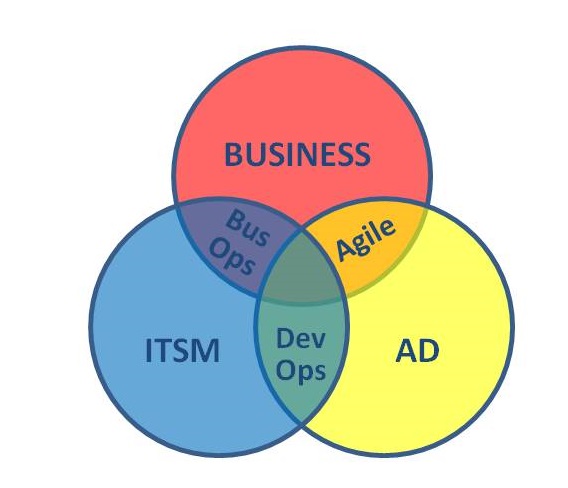Nowadays, the business (customer) expects from IT faster implementation of new functionalities (applications, functionality, versions,…) with fewer errors and higher reliability. To ensure these requirements, the IT service provider must be able to ensure quality and flexibility throughout its value chain. But what is an integral part of the result, as perceived by the customer, is the service as a whole, and in the case of software, this includes proper planning, requirements mapping, code development, testing, release management, deployment into the production environment and subsequent technical as well as non-technical support. It turned out that the quality of the resulting service (product, application) depends not only on the functioning of individual components, but the cooperation of these individual components has a very significant impact as well.
DevOps, a combination of words expressing Development and Operation represents the approach for the entire value chain of services from development to operation.
Despite its Development-Operation name, it would seem that DevOps is intended for these teams, but the scope is broader. All parties involved in the delivery of software, customers, technicians, management, partners, suppliers and so on, fall under DevOps.
It is not precisely defined what DevOps actually is. DevOps can be understood as a philosophical approach based on Agile and Lean principles, where development and operations teams cooperate, communicate and together ensure fast software delivery. DevOps is not yet a well-documented set of recommendations, procedures or regulations such as ITIL®, Prince2® or Cobit. It is not a specific tool, technique, process or job position, or a new team in your organization. In many respects, DevOps represents an umbrella concept that facilitates smooth cooperation between development, operations and other stakeholders such as e.g. Test, Security, Architects etc.

